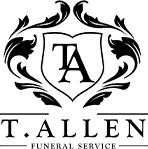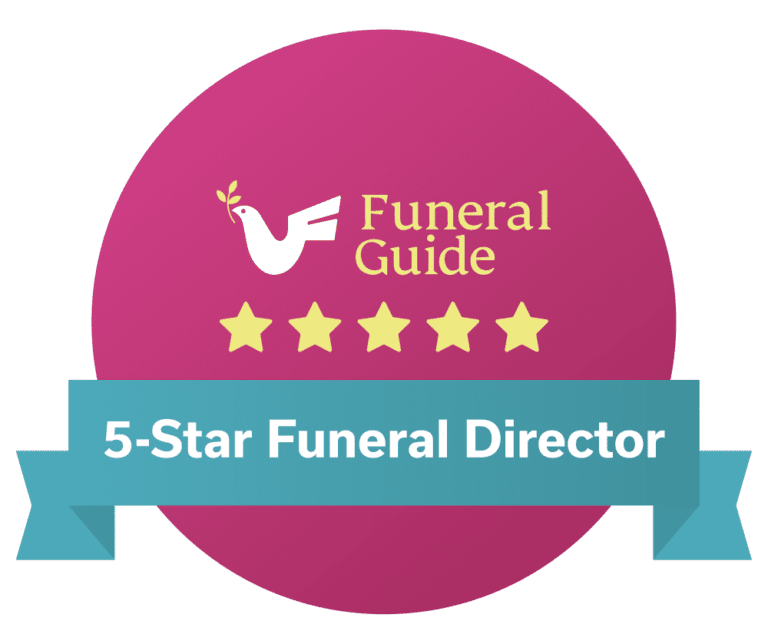What to Expect: A Step-by-Step Guide Through Your First Meeting with a Funeral Director
Arranging a funeral often represents one of the most emotionally challenging tasks families face during bereavement. The prospect of meeting with a funeral director can feel overwhelming when grief clouds thinking and decision-making feels impossible. At T. Allen Funeral Service, we understand that knowledge reduces anxiety, so we’ve created this guide to help you navigate your first meeting with confidence.
Before Your First Meeting
When to Schedule Most families benefit from scheduling within 24-48 hours of death, allowing immediate shock to subside whilst ensuring adequate planning time. However, there’s no universal timeline—some prefer immediate action, others need several days to gather thoughts and family members.
Who Should Attend Consider carefully who should participate. The legally recognised next of kin must be present, but involving other key family members prevents miscommunication. Ideal attendees include spouses, adult children, parents, or anyone designated by the deceased to handle arrangements.
What to Bring Essential documents include death certificate (if available), identity documents, marriage certificates, birth certificate of deceased, funeral plans or insurance policies, and the will. Bring practical information like full legal name, date and place of birth, occupation, surviving family details, and contact information for clergy if already chosen.
The Meeting Environment
First meetings typically occur at funeral director’s offices in comfortable, private spaces designed for sensitive conversations. Our Kent and Medway offices feature living room-like environments rather than business settings, with materials available including coffin options, service examples, and pricing information.
Expect meetings to last 45-60 minutes depending on arrangement complexity. Families choosing straightforward cremation might complete arrangements quickly, whilst elaborate services require longer discussions.
Step-by-Step Meeting Process
Initial Introductions Your funeral director will express condolences, introduce themselves, explain their role, and outline what the meeting will cover. This orientation provides structure for the conversation ahead.
Gathering Essential Information Systematic information collection covers details about the deceased (full name, dates, marital status, occupation, military service, religious affiliations, expressed wishes) and immediate needs (current location, movement requirements, family notification needs).
Explaining Legal Requirements Funeral directors explain death registration requirements, cremation legal steps including medical examinations, burial regulations varying between cemeteries, and time constraints creating minimum timeframes between death and services.
Discussing Service Options This forms the heart of funeral planning, covering service type and location (cremation versus burial, religious versus secular, church versus crematorium), service structure (traditional formats, celebration of life approaches, music and readings), and timing considerations including day preferences and cost implications.
Reviewing Product Options Your funeral director will present coffin options from simple eco-friendly cardboard to elaborate hardwood caskets, funeral vehicle choices including our traditional Daimler hearse and unique Land Rover alternative, flower coordination or charitable donation alternatives, and memorial products like cards or tribute items.
Financial Discussion Transparent conversation includes detailed cost breakdowns, payment options and timing, insurance and prepaid plan coverage, and potential unexpected cost management.
Common Concerns Addressed
“I Don’t Know What They Would Have Wanted” Funeral directors help by asking about personality, values, and lifestyle. Consider what the person valued: simplicity or celebration, privacy or community, tradition or innovation. Remember funerals serve both deceased memory and survivor needs.
“I’m Worried About Making Wrong Decisions” Most funeral decisions don’t have objectively right or wrong answers. Experienced directors provide guidance whilst respecting family autonomy, explaining how other families handled similar situations.
“I Can’t Afford Everything We Should Do” Honest directors help prioritise meaningful elements whilst finding creative budget solutions. Meaningful tributes don’t require expensive elements—simple services with personal touches often provide more comfort.
“Our Family Disagrees” Directors often mediate family discussions, helping find compromises. Consider deceased preferences or closer family relationships that might inform choices. Sometimes separate memorial events accommodate different needs.
After the First Meeting
Documentation and Follow-Up Expect written confirmation at the earliest opportunity covering decisions made and estimates provided. Review carefully when emotionally able and contact immediately with questions or modifications.
Ongoing Communication Most families require several additional conversations covering service content finalisation and coordination with service providers.
Preparation for Additional Decisions Use time between meeting and service to gather photographs, write tributes, select readings and music. Consider asking various family members to contribute memories or suggestions for collaborative, representative services.
Red Flags to Watch For
Be cautious of funeral directors who pressure expensive arrangements, discourage price comparisons, rush important decisions, refuse written estimates, or suggest simple arrangements are inappropriate. Professional directors maintain transparent pricing, clear communication, and flexibility whilst working creatively to accommodate family wishes.
Building Positive Relationships
Establish communication preferences early, understand realistic expectations about what directors can control, and treat them as partners in creating meaningful tributes rather than service providers executing orders.
Cultural and Religious Considerations
Discuss special requirements during your first meeting. Experienced directors accommodate various traditions whilst ensuring legal compliance and can coordinate with religious leaders to align services with appropriate requirements.
Moving Forward with Confidence
Your first meeting represents a significant step in processing grief whilst creating a meaningful tribute. Understanding what to expect reduces anxiety and helps prepare for productive conversations resulting in arrangements reflecting your family’s needs and values.
At T. Allen Funeral Service, we’ve guided countless Kent and Medway families through this process, understanding each family’s unique circumstances. Remember that funeral planning is collaborative—you don’t need perfect answers immediately. Trust in our experience, communicate needs clearly, and allow us to guide practical aspects whilst you focus on remembering and celebrating someone who mattered deeply to your family.

